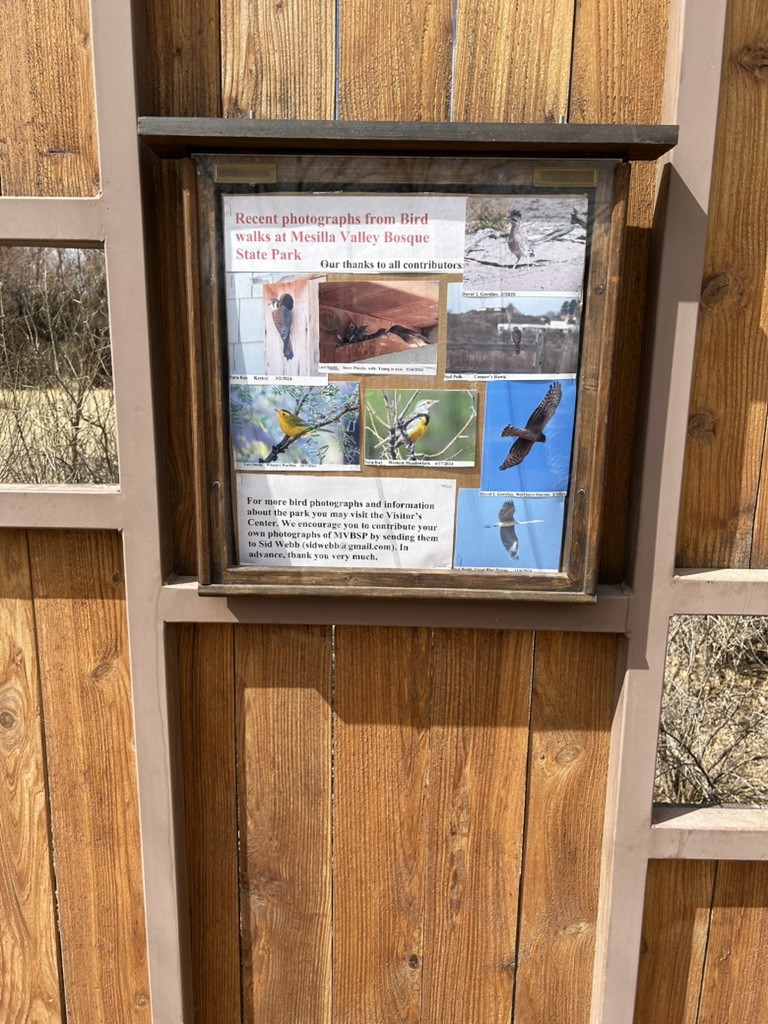It’s high time to wrap up the New Mexico trip reports.
Two trips to Randall Davey Audubon Center, just outside Santa Fe, turned up flocks of Common Ravens loudly kettling in the updrafts from the ridge, often in pairs. At times the birds swooped so low that I could hear wingbeats. Pretty cool.
I followed the loop trail just to where the ponderosa pines started to come in, at about 7425 feet. So I only got one observation, from a distance, and only good enough to ID to subsection. (I still remember the strawberry-scented pinebark from a visit to Rocky Mountain National Park a couple decades ago.)
Nice photos of Mountain Chickadee (Poecile gambeli) and Pygmy Nuthatch (Sitta pygmaea). More Rubber Rabbitbrush; I can understand why there was an effort to tap the plant for rubber—it’s all over the place.
Persistence pays: on my second visit I located Juniper Titmouse (Baeolophus ridgwayi) (honoring Robert Ridgway), another lifer for the trip.
 Dripping Springs Natural Area, in the mountains east of Las Cruces, is a BLM property. When the birds don’t cooperate, take pictures of the landscape, eh? This is a view of the Organ Mountains from La Cueva picnic area.
Dripping Springs Natural Area, in the mountains east of Las Cruces, is a BLM property. When the birds don’t cooperate, take pictures of the landscape, eh? This is a view of the Organ Mountains from La Cueva picnic area.
I spotted a second butterfly species for the trip (it was February, so I was impressed): a trio of Sleepy Oranges (Abaeis nicippe) on Woolly Locoweed (Astragalus mollissimus). And a few snaps of Fishhook Barrel Cactus (Ferocactus wislizeni).
Thank you to all the local iNat folks concurring with and correcting my IDs! I ratcheted my lifetime ratio of species to observations back up to 1:2. (Just in time for EDRR season.)
Seven new birds for my list, bringing my ABA Area total to 440. Plus one for next time: at White Sands, a Sagebrush Sparrow (Artemisiospiza nevadensis) with photographs good enough for an observation, but I can’t say that I saw the bird well enough to count it for my list. My list, my hike, my rules.











